I don’t know Mike Monteiro personally. Apparently I do know someone else who does, but that’s irrelevant here. This post is not about Mike Monteiro, the flesh-and-blood human being, owner of Mule Design Studio and author of Design Is a Job. This post is about @Mike_FTW (NSFW, depending on where you W), Mike Monteiro’s Twitter persona.
In case you’re curious but afraid to click that last link, allow me to explain, as the imagery is critical to my understanding of what @Mike_FTW is all about. The background image on Mike’s Twitter page is a topless photo of Bea Arthur, circa early 1970s. It is a rather plain-looking photo, neither sexualized nor grotesque. It’s almost like a school portrait, actually, except for the fact that she’s not wearing anything.
It may seem a little odd that I should fixate so much on this photo in trying to understand what @Mike_FTW is all about, but I think it’s key. It’s like a surgeon general’s warning for his Twitter feed. It’s provocative, confusing to some, but ultimately benign. But what is it really saying? If Mike were simply trying to (pardon my word choice) titillate, he certainly would have chosen a sexier photo. If he were trying to scare people off, he’d have gone with one more extreme.
I think there’s something much more deliberate, more considered, about this choice of photo. Because while it may ultimately be benign, it’s not without meaning. Bea Arthur, especially in the early 1970s, was a major public face for feminism with her TV show Maude. She chose to have this photo taken and made public. I don’t know all of the circumstances surrounding it, but what it says to me is, “Get over it. They’re just boobs.” It’s a challenge to both ends of the morality spectrum to lighten up, loosen up, toughen up, and wise up. And I think that’s really what Mike Monteiro’s mission is with @Mike_FTW.
@Mike_FTW is almost always abrasive, coarse, and rude, but with an underlying ethos that isn’t too hard to pick up on if you’re paying attention. A couple of recent stunts have cast this in a clear light.
Mike Monteiro: Splenda yoga mom
On May 21-22, @Mike_FTW temporarily changed tone, posting a series of tweets with a cloyingly banal new persona he dubbed “Splenda yoga mom”. It confused and outraged some of his followers, not unlike the “straight” episode of Sealab 2021. Eventually he came clean, explaining in a succinct set of tweets how this stuff works:
@Mike_FTW comes clean
A few tweets from May 22, 2012 wherein Mike Monteiro talks about what he does on Twitter.
Storified by Scott Anderson · Thu, May 31 2012 10:16:45
But it’s more than that. Because he didn’t just pull a stunt to piss off his followers by confounding their unjustified expectations of how he should behave on Twitter. He wrapped the stunt in a successful effort to make a real, positive difference in the world by drumming up thousands of dollars in donations to SmallCanBeBig.org.
What is the value of a tweet?
Yesterday, this happened: Atlanta-based web developer John Graham wrote a blog post, never intended for a wide audience (as most blogs, this one included, rightly should not be) about why he stopped listening to John Gruber’s The Talk Show podcast, and why he unfollowed @Mike_FTW. The post did not offer any great insight, nor was it particularly interesting to anyone beyond the author himself. But there’s no indication that he ever intended it to be, except for one thing: he included “@Mike_FTW” in his tweet about the post. Monteiro picked up the ball Graham had gently placed at his feet, and ran with it.
This time the stunt was to get @johnegraham2 1000 Twitter followers in a day, and get them all to unfollow him en masse a day later. Again the stunt worked… and again it raised over $1000 for SmallCanBeBig.org. In his blog post, John Graham said “The problem for me is that I don’t find him funny and therefore there doesn’t seem to be any value in his tweets.” Humor is subjective, of course, but raising over $1000 to help a family in need in a matter of hours isn’t. A lot of people may not agree with Mike Monteiro’s tactics (if they even understand them), but it’s hard to argue they’re ineffective.
So what’s your point?
What can we really learn from @Mike_FTW, the Twitter alter-ego of Mike Monteiro? How much of it is Mike, and how much is an act? Unless you know Mike personally, that question is impossible to answer. Likewise his motivations to do what he does, the way that he does, are a bit of a mystery. Still, there are some lessons here for how to use social media effectively, something that isn’t lost on @Mike_FTW. After the first stunt, he tweeted in his typically humble fashion:
And THAT, you social media strategy wonk douchebags, is how it’s done.
— Mike Monteiro (@Mike_FTW) May 22, 2012
And, yesterday:
I feel like I am getting the hang of this social media thing. Those webinars practically pay for themselves.
— Mike Monteiro (@Mike_FTW) May 30, 2012
Meanwhile, John Graham, the butt of the joke, responded on his blog and SmallCanBeBig.org showed their appreciation:
$1200+ raised for 3 families (rent, mortgage, utilities for parents with kids facing cancer) @Mike_FTW @johnegraham2 Jokes aside – amazing.
— SmallCanBeBig.org (@SmallCanBeBig) May 31, 2012
What do I learn about social media strategy from Mike Monteiro? First off, don’t think about “social media strategy”. If that’s your focus, you’re doomed to failure. Engagement on social media may be superficial, but it’s real. If you’re doing it to “build your brand” or “extend your reach” or some such nonsense, give up. You have to do it because you want to. You have to mean it. Even if you’re taking on an obnoxious persona that will enrage as many people as it delights, make it meaningful.
Second, be interesting. That doesn’t mean being a “great guy” who’s boring to follow. Don’t play it safe. Take chances. Be distinctive. Be funny, weird, rude, unpredictable. Social media is entertainment as much as anything else, and if you don’t entertain people, they won’t stick around.
Third, or maybe second-and-a-half, have a distinct voice. Remember, the people who only know you through social media only know you through social media. The persona you create doesn’t have to be you, but it has to be someone.
And finally, have fun. I don’t think there’s any doubt that Mike Monteiro has fun with @Mike_FTW. And he certainly has fun poking people who take themselves too seriously.
Update: Mike Monteiro has clarified that the background image on his Twitter page is a painting, not a photo, which is why it hasn’t been banned by Twitter. This fact may alter the veracity and implications of my statement that Bea Arthur posed for and approved the image, but I think the larger message is still relevant. They’re still just boobs.
Also, contrary to all obvious indications, I did not deliberately craft this post in a way to fish for a response, retweet, or acknowledgment from Mike Monteiro. But, perhaps, @Mike_FTW is another story.
Update #2: I neglected to mention this in the original post above, but I think it’s worth at least noting: the situation that seems to have pushed Mike Monteiro over the edge in the case of both of these “stunts” (my word) is the vitriolic reaction many people have had to John Gruber taking The Talk Show to Mike’s Mule Radio Syndicate. It’s not directly relevant to the point I was trying to make here, but it’s probably helpful to provide some context. Mike may be acting like a jerk on Twitter, but it’s nothing compared to some of the reactions he gets.

 Picking up where the last post left off, this morning
Picking up where the last post left off, this morning  I’ve spent the last year-plus tweeting the musings of my 4-year-old daughter. Tomorrow she becomes my 5-year-old daughter, so this seemed like a good time for a compendium of her “greatest hits.”
I’ve spent the last year-plus tweeting the musings of my 4-year-old daughter. Tomorrow she becomes my 5-year-old daughter, so this seemed like a good time for a compendium of her “greatest hits.”
 It’s been two weeks since my last blog entry which, while not exactly a record for inactivity, is surely too long. I’m too busy to write a full entry today but I feel compelled to write a brief status update to tide over anyone who for some reason cares about what I’m doing/saying/thinking.
It’s been two weeks since my last blog entry which, while not exactly a record for inactivity, is surely too long. I’m too busy to write a full entry today but I feel compelled to write a brief status update to tide over anyone who for some reason cares about what I’m doing/saying/thinking.